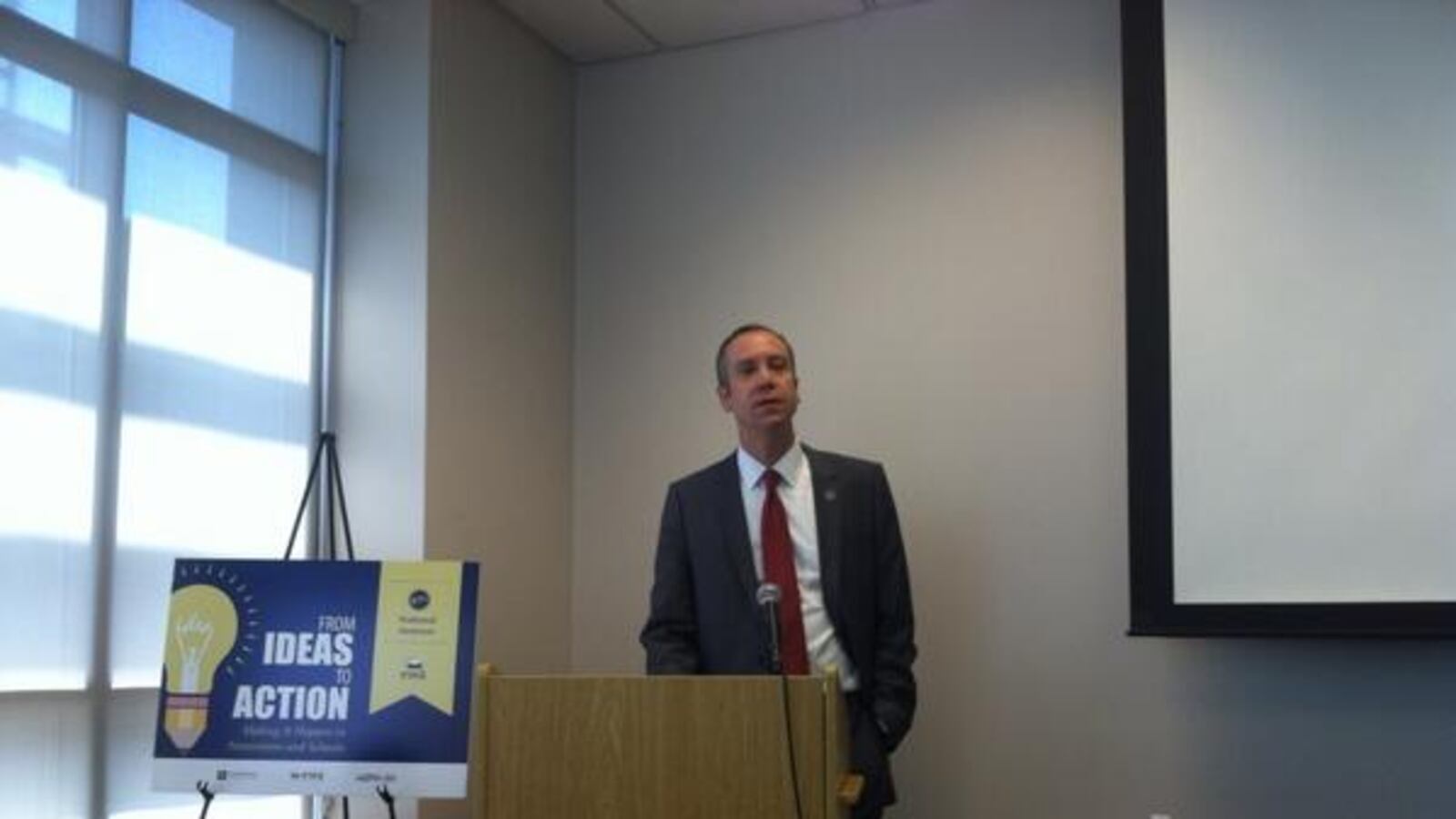When Bill Haslam was running for governor of Tennessee in 2010, a confidant told him that, should he win, his job would be to “stand in the doorway making certain [Tennesseans] don’t retreat” from educational change, the governor recounted in Nashville Monday.
Haslam demonstrated that he takes that job seriously in Monday’s keynote speech at the Education Writers Association conference at Vanderbilt University. The conference is a gathering of education reporters and advocates across the country and is being hosted by Vanderbilt University this year.
Despite backlash to some of Haslam’s education agenda this legislative session, both he and education commissioner Kevin Huffman said in separate speeches they were proud of academic results of policy initiatives like the state-run Achievement School District, implementation of Common Core Standards, and more rigorous teacher evaluation programs.
Haslam was especially relieved that Common Core standards remained unscathed, although he was disappointed that the legislature voted to delay the implementation of PARCC assessments, which were designed according to the standards.
“In my mind, [the PARCC delay] was much more preferred than backing out of using Common Core Standards in our classroom,” he said.
A second setback was a budget shortfall that prevented Haslam from making good on a promise to raise teachers’ salaries. Huffman, the commissioner, said that the lack of funds complicates plans to revamp the state’s teacher compensation model. He has been a proponent of teacher compensation based on performance, but said that it would be easier to give teachers’ raises based on evaluations if everyone had gotten the basic raise promised.
Students also did not perform as well on the ACT as he had expected.
“We can reason that some of the kids who are coming through the pipeline will ultimately get better ACT scores,” Haslam said. “But ultimately if we bank on that, that’s probably a failed strategy…it’s a long way to go. It’s not as if getting these test scores means we get to declare victory.”
Overall, however, Haslam and Huffman said they were pleased with state’s progress, especially on the National Assessment of Educational Progress (NAEP). Tennessee improved their NAEP scores for the 2012-2013 school year.
Huffman also pointed to better TCAP scores, stating that students have improved on the tests every year since reform related to teacher evaluations and Common Core standards were rolled out in 2011.
Both Haslam and Huffman attributed Tennessee’s revamped — and controversial — teacher evaluation system, which includes student performance as well as qualitative data based on in-person evaluations, to increased test scores.
“We have the biggest improvement of any state ever,” Haslam said. “We think it’s noteworthy.”

